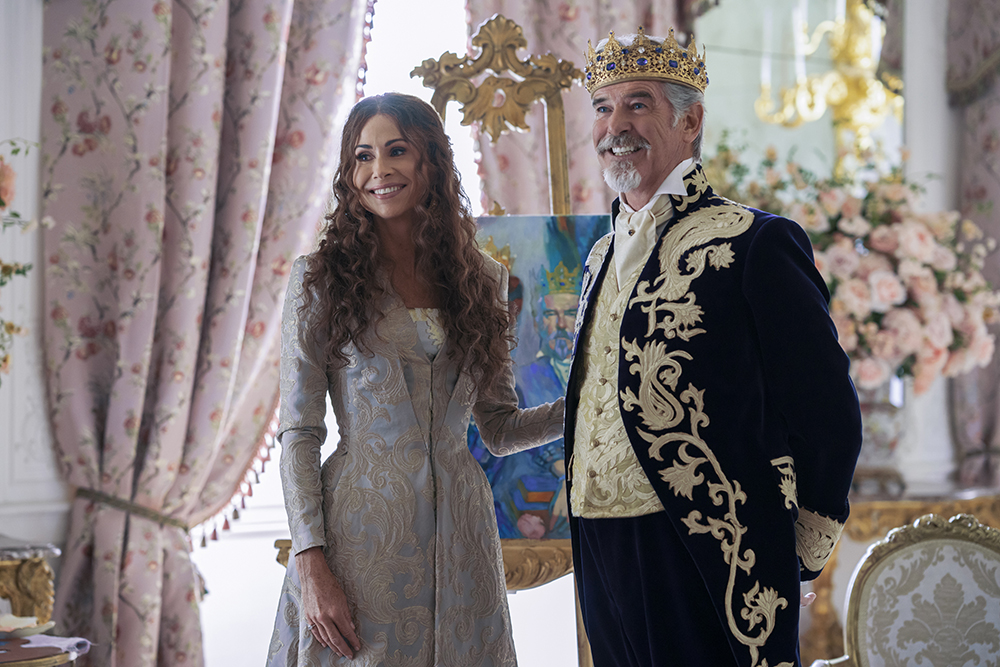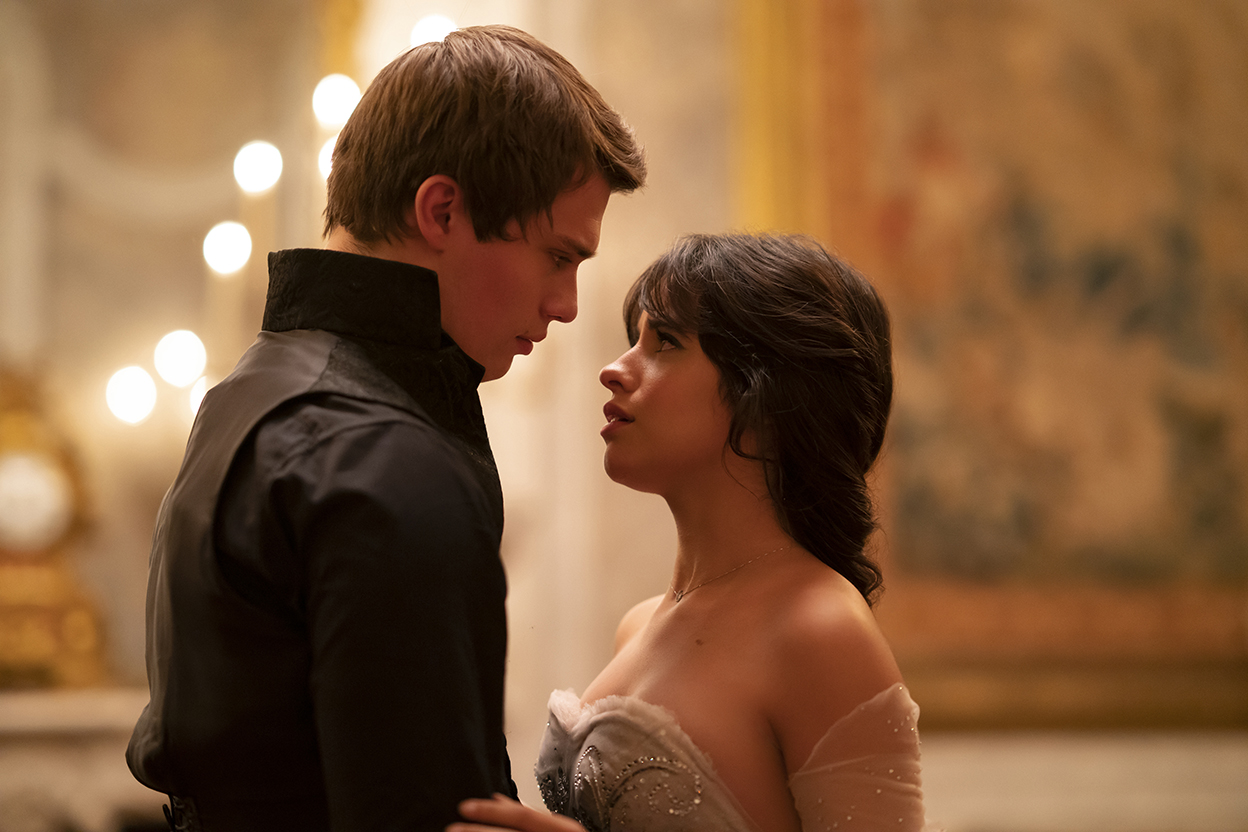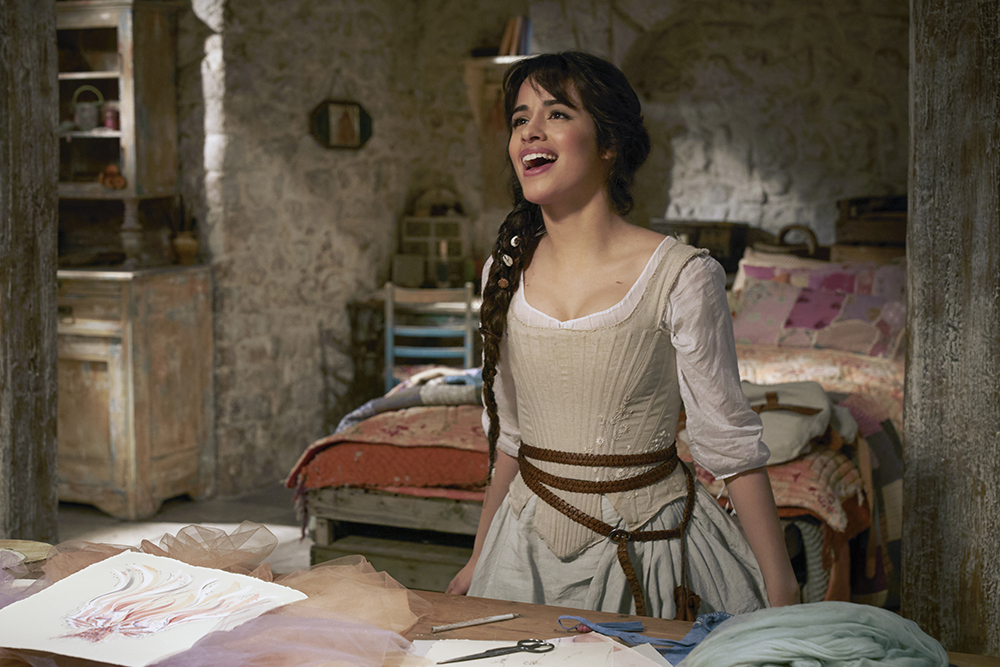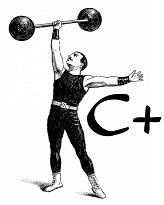When we talk about Hollywood recycling ideas, we think of endless sequels and films shamelessly derivative of superior works. But one story that Hollywood will never stop retelling is the story of a mistreated stepdaughter who becomes a princess.
Kay Cannon writes and directs “Cinderella,” the umpteenth film adaptation of the classic fairy tale. This time, we have singer-songwriter Camila Cabello stepping into the glass slippers of the iconic princess, in the most well-known rags-to-riches story ever told and the first to be dropped on Amazon Prime Video.
Is There a Need for a Musical Cinderella?
Everyone knows this story, so do we need to see another one? Not really; but there is an infinite number of worse ways that you can spend one hour and 53 minutes. And between this film and “Cats,” this is easily the superior musical film of the last two years to feature James Corden as a talking animal.
If you know the story of “Cinderella,” you know what to expect from this movie. If you don’t, this honestly isn’t a bad way to experience the story for the first time. With talents such as Idina Menzel blessing the screen as the evil stepmother, good music is inevitable.

© 2021 Amazon Content Services LLC
And the music doesn’t disappoint, giving us a combination of covers of classic songs and originals, namely Cabello’s “Million to One.” While it can feel as if the film is desperately padding its run-time with musical performances from every character, it never stops being entertaining for a second.
What separates this from the other renditions of “Cinderella?” The most original quality this film has going for it is its progressive messages. It’s a modern take on a classic tale, offering a feminist spin at every turn. For example, Cinderella is no longer a helpless young woman but a dressmaker who wants to be a businesswoman, yet no one takes her seriously.
More Progressive This Time Around
Giving her this characterization allowed for her to be a more compelling protagonist. However, the film’s themes could be a bit heavy-handed, even to those who agree with the feminist messages. There are lines of dialogue and character choices so blatant that it’s pretty impossible to miss.
As far as the performances go, they are, for the most part, excellent. Perhaps my standards are lower after watching “He’s All That,” but Cabello portrays a very likable protagonist. She has charisma, grit, and a sense of humor, while also being fierce and determined.

© 2021 Amazon Content Services LLC
Everyone is serviceable in their roles, whether it’s Nicholas Galitzine as the charming prince or Pierce Brosnan as the uptight king with a desire for immense control over his son. However, possibly the worst part of the film is the scenes with the mice, where the humor doesn’t land and is another example of Hollywood over-calculating the amount of James Corden that audiences want to see.
Good Performances and a Movie that Can Be Sweet
Billy Porter is utterly fabulous as the Fairy Godparent; he gives a rendition we have never seen before, but is a wonderful surprise, despite his minimal screen time. There is a lot of charm being thrown at the screen by every character.
While the story is stretched to its limit, the movie is never dull, even when it’s asking us to suspend ten times more disbelief than the Clark Kent disguise. Parts of the film don’t make sense; not all the humor lands, but unless you hate musicals, this movie is perfectly passable.
It’s a progressively charming take on a romantic tale, and there are sweet, romantic moments throughout the film, even if there isn’t much you haven’t seen before. This movie can make some people miserable, but it can be the best fairy tale of the year for the right audience member.


